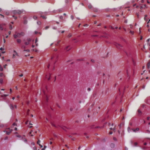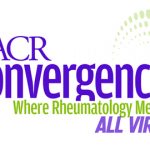
Sarawut Aiemsinsuk / shutterstock.com
Rheumatological diseases can be complex, so how can those within the specialty help ensure information about rheumatology shared by the media is accurate? Cue the ACR/ARHP Experts on Call program, which is designed to connect rheumatology health professionals with journalists looking for subject matter experts.
Experts on Call is managed by the ACR’s Public Relations Department. When a journalist contacts the department for story sources, staff members reach out to ACR and ARHP members who have expressed an interest in serving as an educational resource for the press on a specific topic, says Jocelyn Givens, public relations director.
At any given time, 75–100 members have said they would like to help with general media queries. Experts on Call receives multiple requests each week from reporters looking to speak with a rheumatologist or another health professional.
The kinds of stories in progress by reporters fall under a wide range of story topics and venues. “Often, these are trade reporters writing about research that has recently been released, and they want an independent comment on the findings and clinical implications,” Ms. Givens says. “Other times, a reporter may be writing a health and wellness or education article for the general public and would like to speak with a physician to get information and quotes they can use.”
Sometimes, journalists writing career or self-help articles need rheumatologists to interview about their personal experience with a topic, she adds.
Recent examples of stories where an Experts on Call source was used include:
- A story geared toward newly diagnosed gout patients for a consumer publication;
- a blog post on difficult-to-diagnose autoimmune diseases for a trade site; and
- an article examining a recent juvenile arthritis study for a trade publication.
How It Works for the Experts
A rheumatology health professional with an active ACR/ARHP membership can fill out a short questionnaire for Experts on Call and identify areas of expertise and interest. The topics on the questionnaire are based on prior requests received from reporters; the questionnaire has more than 60 topic areas. After that is completed, media requests aligned with the member’s interests are sent on.
“When we receive a request, we gather as much information as the reporter can provide to match them with experts who can provide the perspective they desire for their story,” Ms. Givens says.
ACR/ARHP staff try to have multiple members available to help with requests for all topic areas.
Although reporters are not required to send a copy of the article before it is published to the ACR/ARHP or the Experts on Call source, the ACR recommends experts offer to fact check their quotes, and the article, if the publication’s policies permit it. “Often, reporters will volunteer to send their story for fact checking, or at a minimum, share quotes if asked. We find the key to this is understanding that reporters are on deadline, ensuring them that you will provide a quick review once the piece is received and to follow through on that promise,” Ms. Givens says. “Rheumatic diseases are complex topics to write about, and in most cases, reporters appreciate knowing they have accurately captured the views of the physician or health professional they interviewed.”
Realizing the sensitivity of deadlines for reporters is key for members who may want to participate in Experts on Call, Ms. Givens says. Often, sources are asked to provide commentary or share their expert knowledge within a 24- to 48-hour time frame.
Sources identified through Experts on Call are not ACR/ARHP spokespeople, Ms. Givens says. “They serve as educational resources on subjects they have expressed knowledge of via the questionnaire, and they are quoted as being from their respective organizations and institutions,” she explains. When a request related to an ACR/ARHP initiative or position on a topic comes in, staff members work with the appropriate committee to formulate a response or schedule an interview with a member of ACR/ARHP leadership.
What Experts Have to Say
Rheumatologists who participate in Experts on Call say they find it rewarding to educate the media and the general public about rheumatology.
“I was asked, and it sounded interesting to talk to writers and the media,” says Scott Zashin, MD, FACP, FACR, medical director and clinical professor, University of Texas Southwestern Medical School, Dallas. Dr. Zashin has been part of the program for 10 years; he speaks with journalists about once a quarter for stories. He is commonly interviewed about diet and nonpharmaceutical treatments.
Bharat Kumar, MD, MME, FACP, associate director of the rheumatology fellowship program in the Division of Immunology at the University of Iowa Hospitals and Clinics, Iowa City, signed up because he believes rheumatologists must work as patient advocates. “Advocacy means not only fighting for an individual patient’s rights and privileges in the clinic, but also raising the public’s level of knowledge and familiarity with rheumatology. Every time I’m put on the record, I feel like I’m advancing the conversation.”
Speaking with the press also takes some of the mystery out of joint and autoimmune disease, Dr. Kumar says—not to mention correcting myths and falsehoods. That’s also something that attracted Arina Garg, MD, rheumatology fellow, Louisiana State University Health, Shreveport, to the program.
“There is a lot of ‘fake news’ in the medical realm, and it’s nice to have a platform for medical professionals where they are given an opportunity to share their opinions based on medical expertise,” Dr. Garg says.
Both Drs. Garg and Kumar find they are asked a wide range of questions about various diseases or conditions. Some topic examples Dr. Garg shared include the relationship between rheumatoid arthritis and gastrointestinal comorbidities, and questions pertaining to a new device or treatment. She has spoken with writers for popular websites, such as U.S. News and World Report and WebMD.
Questions often focus on the bottom line, such as how a particular news event affects someone with rheumatological disease, Dr. Kumar says.
“I like the breadth of the questions,” Dr. Garg says. “They are insightful and give me an opportunity to read up and learn about the latest guidelines or treatment options.”
About half the time, a reporter will share a story in advance with Dr. Kumar. “I appreciate that extra step that writers take so I have the chance to correct any problematic statements,” he says.
Deadlines can be an issue, Dr. Garg says, so she is happy to get her answers to reporters in a timely manner without necessarily seeing the article.
Participation in Experts on Call doesn’t usually take much time, Dr. Garg says. Often, reporters will send questions via email or give you a quick call to help you prepare. It is actually a standard part of the ACR/ARHP process to ask reporters for questions in advance or, at a minimum, to have some basic information about the story to pass on to sources, Ms. Givens says.
Dr. Kumar encourages rheumatologists who are passionate about advocacy, who can communicate clearly and who have a little extra time to participate in Experts on Call.
Vanessa Caceres is a medical writer in Bradenton, Fla.



